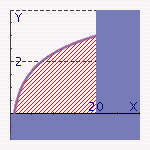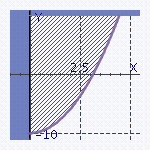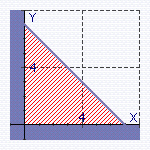Deck 8: Functions of Several Variables
Question
Question
Question
Question
Question
Question
Question
Question
Question
Question
Question
Question
Question
Question
Question
Question
Question
Question
Question
Question
Question
Question
Question
Question
Question
Question
Question
Question
Match between columns
Question
Question
Question
Question
Question
Question
Question
Question
Question
Question
Question
Question
Question
Question
Question
Match between columns
Question
Question
Question
Question
Question
Question
Question
Question
Question
Question
Question
Question
Question
Question
Match between columns
Question
Question
Question
Question
Question
Question
Match between columns
Question
Match between columns
Question
Question
Question
Question
Question
Match between columns
Question
Question
Question
Match between columns
Question
Question
Question
Question
Question
Question
Match between columns
Question
Question

Unlock Deck
Sign up to unlock the cards in this deck!
Unlock Deck
Unlock Deck
1/133
Play
Full screen (f)
Deck 8: Functions of Several Variables
1
Graph the function. 
A)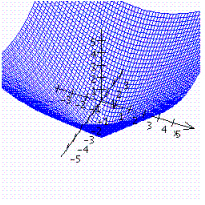
B)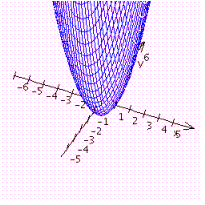
C)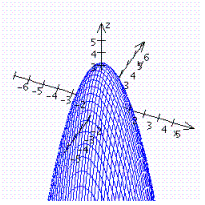
D)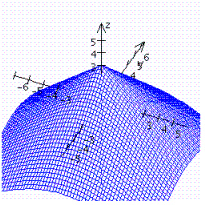

A)

B)

C)

D)


2
Graph the function. 
A)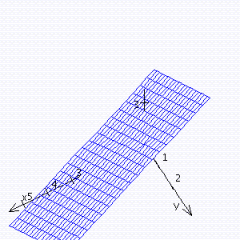
B)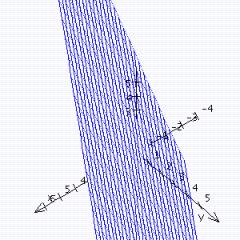
C)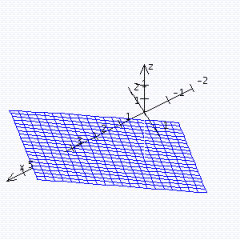
D)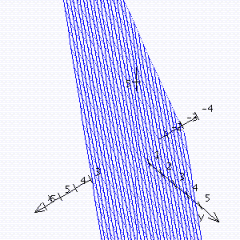

A)

B)

C)

D)


3
Sketch the graph of the function. 
A)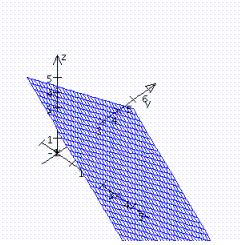
B)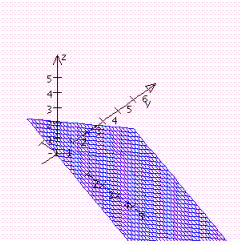
C)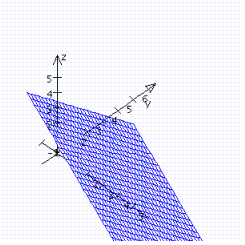
D)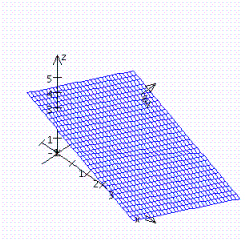

A)

B)

C)

D)


4
Sketch the graph of the function. 
A)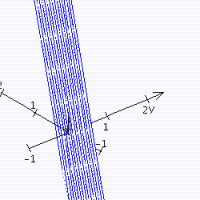
B)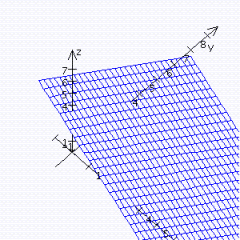
C)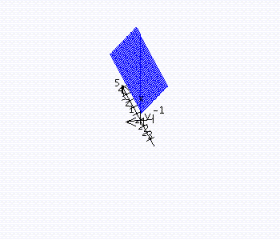
D)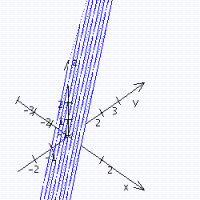

A)

B)

C)

D)


Unlock Deck
Unlock for access to all 133 flashcards in this deck.
Unlock Deck
k this deck
5
or the function  show cross section at
show cross section at  .
.
A)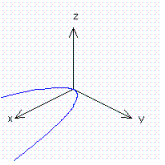
B)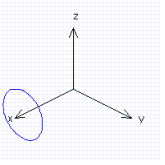
C)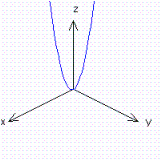
D)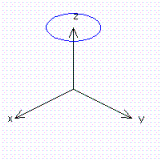
 show cross section at
show cross section at  .
.A)

B)

C)

D)


Unlock Deck
Unlock for access to all 133 flashcards in this deck.
Unlock Deck
k this deck
6
Evaluate  for
for 
A)
B)
C)
D)
E)
 for
for 
A)

B)

C)

D)

E)


Unlock Deck
Unlock for access to all 133 flashcards in this deck.
Unlock Deck
k this deck
7
Evaluate  for
for 
A)
B)
C)
D)
E)
 for
for 
A)

B)

C)

D)

E)


Unlock Deck
Unlock for access to all 133 flashcards in this deck.
Unlock Deck
k this deck
8
Use the given tabular representation of the function  to compute
to compute  .
. 
A)
B)
C)
D)
E)
 to compute
to compute  .
. 
A)

B)

C)

D)

E)


Unlock Deck
Unlock for access to all 133 flashcards in this deck.
Unlock Deck
k this deck
9
Graph the plane.  =
= 
A)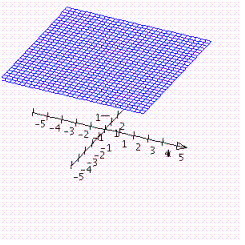
B)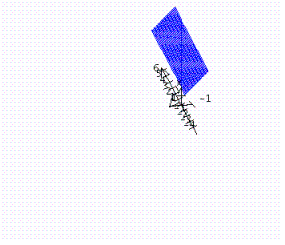
C)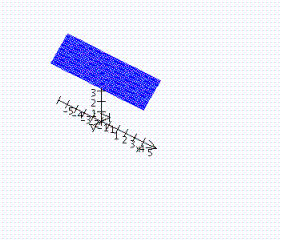
D)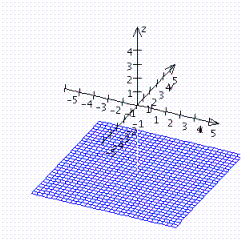
 =
= 
A)

B)

C)

D)


Unlock Deck
Unlock for access to all 133 flashcards in this deck.
Unlock Deck
k this deck
10
Sketch the graph of the function. 
A)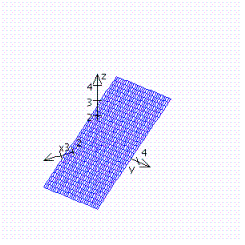
B)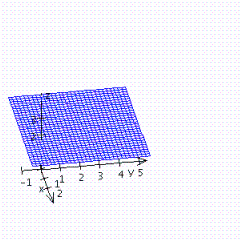
C)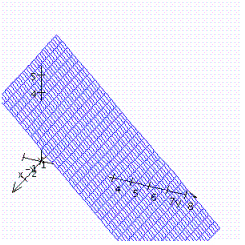
D)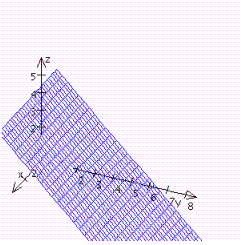

A)

B)

C)

D)


Unlock Deck
Unlock for access to all 133 flashcards in this deck.
Unlock Deck
k this deck
11
Sketch the graph of the function. 
A)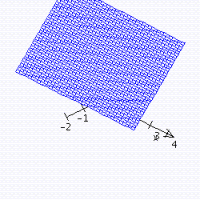
B)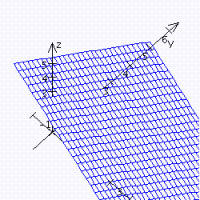
C)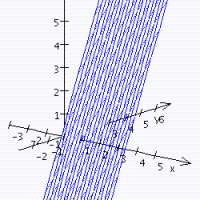
D)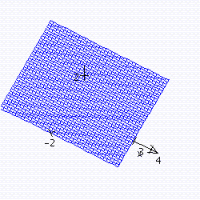

A)

B)

C)

D)


Unlock Deck
Unlock for access to all 133 flashcards in this deck.
Unlock Deck
k this deck
12
For the function  find
find  . Round to the nearest whole number if necessary.
. Round to the nearest whole number if necessary.
A)11
B)10
C)12
D)13
E)17
 find
find  . Round to the nearest whole number if necessary.
. Round to the nearest whole number if necessary.A)11
B)10
C)12
D)13
E)17

Unlock Deck
Unlock for access to all 133 flashcards in this deck.
Unlock Deck
k this deck
13
For the function  find
find  .
.
A)384
B)422
C)794
D)397
E)410
 find
find  .
.A)384
B)422
C)794
D)397
E)410

Unlock Deck
Unlock for access to all 133 flashcards in this deck.
Unlock Deck
k this deck
14
Evaluate  for
for 
A)
B)
C)
D)
E)
 for
for 
A)

B)

C)

D)

E)


Unlock Deck
Unlock for access to all 133 flashcards in this deck.
Unlock Deck
k this deck
15
Graph the function. 
A)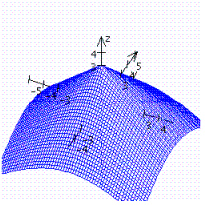
B)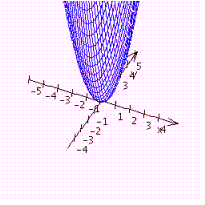
C)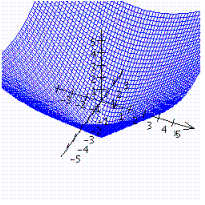
D)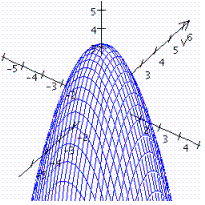

A)

B)

C)

D)


Unlock Deck
Unlock for access to all 133 flashcards in this deck.
Unlock Deck
k this deck
16
Sketch the graph of the function. 
A)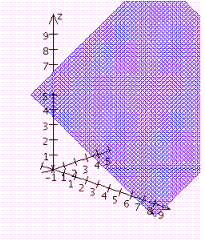
B)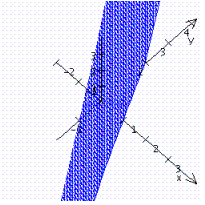
C)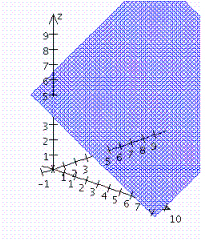
D)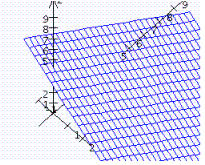

A)

B)

C)

D)


Unlock Deck
Unlock for access to all 133 flashcards in this deck.
Unlock Deck
k this deck
17
Graph the function. 
A)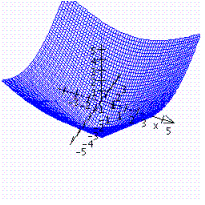
B)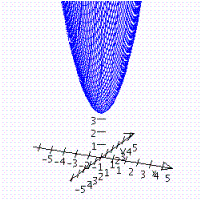
C)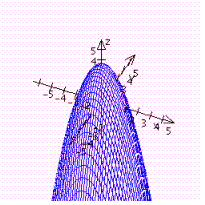
D)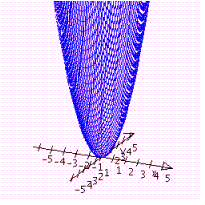

A)

B)

C)

D)


Unlock Deck
Unlock for access to all 133 flashcards in this deck.
Unlock Deck
k this deck
18
Graph the function. 
A)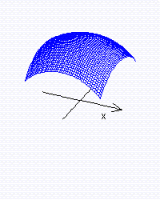
B)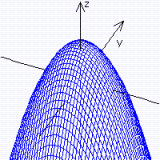
C)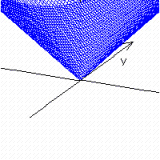
D)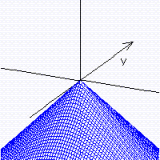

A)

B)

C)

D)


Unlock Deck
Unlock for access to all 133 flashcards in this deck.
Unlock Deck
k this deck
19
Let  . By what value is
. By what value is  increased if
increased if  is increased by 1?
is increased by 1?
A)5.4
B)4.4
C)1
D)42.9
E)38.5
 . By what value is
. By what value is  increased if
increased if  is increased by 1?
is increased by 1?A)5.4
B)4.4
C)1
D)42.9
E)38.5

Unlock Deck
Unlock for access to all 133 flashcards in this deck.
Unlock Deck
k this deck
20
For the function  find
find  . Express the answer as a decimal rounded to four decimal places.
. Express the answer as a decimal rounded to four decimal places.
A)
B)
C)
D)
E)
 find
find  . Express the answer as a decimal rounded to four decimal places.
. Express the answer as a decimal rounded to four decimal places.A)

B)

C)

D)

E)


Unlock Deck
Unlock for access to all 133 flashcards in this deck.
Unlock Deck
k this deck
21
Use the given tabular representation of the function f to compute f (5, 10)- f (10, 5).. 


Unlock Deck
Unlock for access to all 133 flashcards in this deck.
Unlock Deck
k this deck
22
Graph the function. 
A)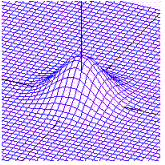
B)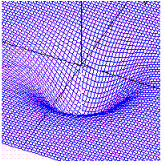
C)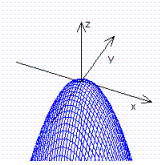
D)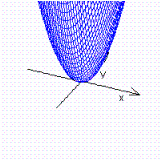

A)

B)

C)

D)


Unlock Deck
Unlock for access to all 133 flashcards in this deck.
Unlock Deck
k this deck
23
Your on-line bookstore is in direct competition with Amazon.com, BN.com, and Borders.com. Your company s daily revenue in dollars is given by  where x , y , and z are the online daily revenues of Amazon.com, BN.com, and Borders.com, respectively. If Amazon.com and BN.com each show a daily revenue of $9,000, give an equation showing how your daily revenue depends on that of Borders.com.
where x , y , and z are the online daily revenues of Amazon.com, BN.com, and Borders.com, respectively. If Amazon.com and BN.com each show a daily revenue of $9,000, give an equation showing how your daily revenue depends on that of Borders.com.
A)R ( z )= 30,000 - 180 x - 90 y - 0.01 z + 0.0001 yz
B)R ( z )= 30,000 - 0.01 z
C)R ( z )= 29,730 + 0.89 z
D)R ( z )= 30,000 - 0.01 z + 0.0001 z
E)R ( z )= 29,730
 where x , y , and z are the online daily revenues of Amazon.com, BN.com, and Borders.com, respectively. If Amazon.com and BN.com each show a daily revenue of $9,000, give an equation showing how your daily revenue depends on that of Borders.com.
where x , y , and z are the online daily revenues of Amazon.com, BN.com, and Borders.com, respectively. If Amazon.com and BN.com each show a daily revenue of $9,000, give an equation showing how your daily revenue depends on that of Borders.com.A)R ( z )= 30,000 - 180 x - 90 y - 0.01 z + 0.0001 yz
B)R ( z )= 30,000 - 0.01 z
C)R ( z )= 29,730 + 0.89 z
D)R ( z )= 30,000 - 0.01 z + 0.0001 z
E)R ( z )= 29,730

Unlock Deck
Unlock for access to all 133 flashcards in this deck.
Unlock Deck
k this deck
24
For the function  show the cross section at
show the cross section at  .
.
A)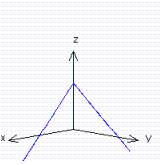
B)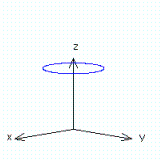
C)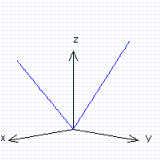
D)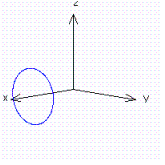
 show the cross section at
show the cross section at  .
.A)

B)

C)

D)


Unlock Deck
Unlock for access to all 133 flashcards in this deck.
Unlock Deck
k this deck
25
Your on-line bookstore is in direct competition with Amazon.com, BN.com, and Borders.com. Your company s daily revenue in dollars is given by  where x , y , and z are the online daily revenues of Amazon.com, BN.com, and Borders.com, respectively. If Amazon.com and BN.com each show a daily revenue of $2,000, give an equation showing how your daily revenue depends on that of Borders.com.
where x , y , and z are the online daily revenues of Amazon.com, BN.com, and Borders.com, respectively. If Amazon.com and BN.com each show a daily revenue of $2,000, give an equation showing how your daily revenue depends on that of Borders.com.
 where x , y , and z are the online daily revenues of Amazon.com, BN.com, and Borders.com, respectively. If Amazon.com and BN.com each show a daily revenue of $2,000, give an equation showing how your daily revenue depends on that of Borders.com.
where x , y , and z are the online daily revenues of Amazon.com, BN.com, and Borders.com, respectively. If Amazon.com and BN.com each show a daily revenue of $2,000, give an equation showing how your daily revenue depends on that of Borders.com.
Unlock Deck
Unlock for access to all 133 flashcards in this deck.
Unlock Deck
k this deck
26
Cobb-Douglas productivity functions have the form  where P stands for the number of items produced per year, x is the number of employees, and y is the annual operating budget. The numbers K and a are constants that depend on the situation we are looking at, with
where P stands for the number of items produced per year, x is the number of employees, and y is the annual operating budget. The numbers K and a are constants that depend on the situation we are looking at, with  How many items will be produced per year by a company that has 150 employees and an annual operating budget of $70,000 if K = 1000 and a = 0.6? (Round your answer to one significant digit.)
How many items will be produced per year by a company that has 150 employees and an annual operating budget of $70,000 if K = 1000 and a = 0.6? (Round your answer to one significant digit.)
A)1,000,000
B)2,000,000
C)3,000,000
D)1,752,645.1
E)2,752,645.1
 where P stands for the number of items produced per year, x is the number of employees, and y is the annual operating budget. The numbers K and a are constants that depend on the situation we are looking at, with
where P stands for the number of items produced per year, x is the number of employees, and y is the annual operating budget. The numbers K and a are constants that depend on the situation we are looking at, with  How many items will be produced per year by a company that has 150 employees and an annual operating budget of $70,000 if K = 1000 and a = 0.6? (Round your answer to one significant digit.)
How many items will be produced per year by a company that has 150 employees and an annual operating budget of $70,000 if K = 1000 and a = 0.6? (Round your answer to one significant digit.)A)1,000,000
B)2,000,000
C)3,000,000
D)1,752,645.1
E)2,752,645.1

Unlock Deck
Unlock for access to all 133 flashcards in this deck.
Unlock Deck
k this deck
27
Your weekly cost (in dollars)to manufacture x cars and y trucks is  What is the marginal cost of a truck? Please enter your answer as a number without the units.
What is the marginal cost of a truck? Please enter your answer as a number without the units.
 What is the marginal cost of a truck? Please enter your answer as a number without the units.
What is the marginal cost of a truck? Please enter your answer as a number without the units.
Unlock Deck
Unlock for access to all 133 flashcards in this deck.
Unlock Deck
k this deck
28
Match between columns

Unlock Deck
Unlock for access to all 133 flashcards in this deck.
Unlock Deck
k this deck
29
For the function  show the cross section at
show the cross section at  .
.
A)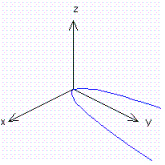
B)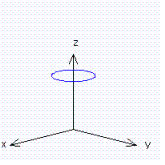
C)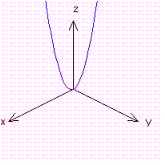
D)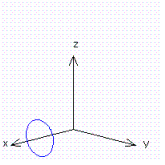
 show the cross section at
show the cross section at  .
.A)

B)

C)

D)


Unlock Deck
Unlock for access to all 133 flashcards in this deck.
Unlock Deck
k this deck
30
Evaluate  for
for 
 for
for 

Unlock Deck
Unlock for access to all 133 flashcards in this deck.
Unlock Deck
k this deck
31
Graph the function. 
A)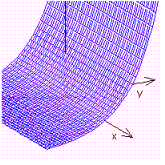
B)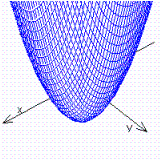
C)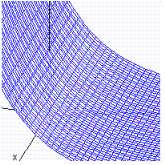
D)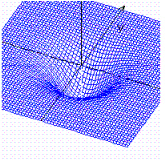

A)

B)

C)

D)


Unlock Deck
Unlock for access to all 133 flashcards in this deck.
Unlock Deck
k this deck
32
Cobb-Douglas productivity functions have the form  where P stands for the number of items produced per year, x is the number of employees, and y is the annual operating budget. The numbers K and a are constants that depend on the situation we are looking at, with
where P stands for the number of items produced per year, x is the number of employees, and y is the annual operating budget. The numbers K and a are constants that depend on the situation we are looking at, with  How many items will be produced per year by a company that has 200 employees and an annual operating budget of $100,000 if K = 1,000 and a = 0.6? (Round your answer to one significant digit.)
How many items will be produced per year by a company that has 200 employees and an annual operating budget of $100,000 if K = 1,000 and a = 0.6? (Round your answer to one significant digit.)
 where P stands for the number of items produced per year, x is the number of employees, and y is the annual operating budget. The numbers K and a are constants that depend on the situation we are looking at, with
where P stands for the number of items produced per year, x is the number of employees, and y is the annual operating budget. The numbers K and a are constants that depend on the situation we are looking at, with  How many items will be produced per year by a company that has 200 employees and an annual operating budget of $100,000 if K = 1,000 and a = 0.6? (Round your answer to one significant digit.)
How many items will be produced per year by a company that has 200 employees and an annual operating budget of $100,000 if K = 1,000 and a = 0.6? (Round your answer to one significant digit.)
Unlock Deck
Unlock for access to all 133 flashcards in this deck.
Unlock Deck
k this deck
33
The burden of human made aerosol sulfate in the earth s atmosphere, in grams per square meter, is  where x is the total weight of aerosol sulfate emitted into the atmosphere per year and n is the number of years it remains in the atmosphere. A is the surface area of the earth, approximately
where x is the total weight of aerosol sulfate emitted into the atmosphere per year and n is the number of years it remains in the atmosphere. A is the surface area of the earth, approximately  square meters. Calculate the burden given the 1995 estimated values of
square meters. Calculate the burden given the 1995 estimated values of  grams per year and
grams per year and  days. Enter the number of grams per square meter as a number without the units. Round to three decimal places.
days. Enter the number of grams per square meter as a number without the units. Round to three decimal places.
A)0.168 grams per square meter
B)0.081 grams per square meter
C)0.040 grams per square meter
D)14.706 grams per square meter
E)1.048 grams per square meter
 where x is the total weight of aerosol sulfate emitted into the atmosphere per year and n is the number of years it remains in the atmosphere. A is the surface area of the earth, approximately
where x is the total weight of aerosol sulfate emitted into the atmosphere per year and n is the number of years it remains in the atmosphere. A is the surface area of the earth, approximately  square meters. Calculate the burden given the 1995 estimated values of
square meters. Calculate the burden given the 1995 estimated values of  grams per year and
grams per year and  days. Enter the number of grams per square meter as a number without the units. Round to three decimal places.
days. Enter the number of grams per square meter as a number without the units. Round to three decimal places.A)0.168 grams per square meter
B)0.081 grams per square meter
C)0.040 grams per square meter
D)14.706 grams per square meter
E)1.048 grams per square meter

Unlock Deck
Unlock for access to all 133 flashcards in this deck.
Unlock Deck
k this deck
34
Evaluate  for
for 
 for
for 

Unlock Deck
Unlock for access to all 133 flashcards in this deck.
Unlock Deck
k this deck
35
Suppose your newspaper is trying to decide between two competing desktop publishing software packages, Macro Publish and Turbo Publish. You estimate that if you purchase x copies of Macro Publish and y copies of Turbo Publish, your company s daily productivity will be  where U ( x , y )is measured in pages per day ( U is called a utility function.)If x = y = 13, by approximately how many pages per day will productivity increase if x is increased by one unit?
where U ( x , y )is measured in pages per day ( U is called a utility function.)If x = y = 13, by approximately how many pages per day will productivity increase if x is increased by one unit?
A)A productivity increase of approximately 9.17 pages per day.
B)A productivity increase of approximately 3.59 pages per day.
C)A productivity increase of approximately 4.59 pages per day.
D)A productivity decrease of approximately 65.00 pages per day.
E)A productivity increase of approximately 69.59 pages per day.
 where U ( x , y )is measured in pages per day ( U is called a utility function.)If x = y = 13, by approximately how many pages per day will productivity increase if x is increased by one unit?
where U ( x , y )is measured in pages per day ( U is called a utility function.)If x = y = 13, by approximately how many pages per day will productivity increase if x is increased by one unit?A)A productivity increase of approximately 9.17 pages per day.
B)A productivity increase of approximately 3.59 pages per day.
C)A productivity increase of approximately 4.59 pages per day.
D)A productivity decrease of approximately 65.00 pages per day.
E)A productivity increase of approximately 69.59 pages per day.

Unlock Deck
Unlock for access to all 133 flashcards in this deck.
Unlock Deck
k this deck
36
Evaluate  for
for 
 for
for 

Unlock Deck
Unlock for access to all 133 flashcards in this deck.
Unlock Deck
k this deck
37
Your weekly cost (in dollars)to manufacture x cars and y trucks is  What is the marginal cost of a car?
What is the marginal cost of a car?
A)$244,000
B)$4,000
C)$246,000
D)$3,000
E)$6,000
 What is the marginal cost of a car?
What is the marginal cost of a car?A)$244,000
B)$4,000
C)$246,000
D)$3,000
E)$6,000

Unlock Deck
Unlock for access to all 133 flashcards in this deck.
Unlock Deck
k this deck
38
Let  . By what value is
. By what value is  increased if
increased if  is increased by 1?
is increased by 1?
 . By what value is
. By what value is  increased if
increased if  is increased by 1?
is increased by 1?
Unlock Deck
Unlock for access to all 133 flashcards in this deck.
Unlock Deck
k this deck
39
Graph the function. 
A)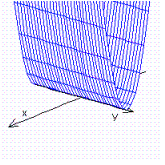
B)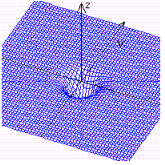
C)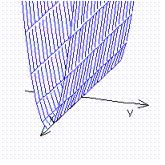
D)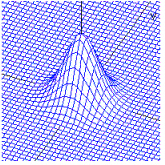

A)

B)

C)

D)


Unlock Deck
Unlock for access to all 133 flashcards in this deck.
Unlock Deck
k this deck
40
For the function  show the cross section at
show the cross section at  .
.
A)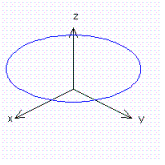
B)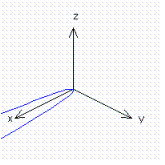
C)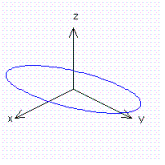
D)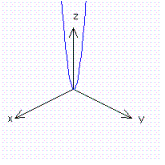
 show the cross section at
show the cross section at  .
.A)

B)

C)

D)


Unlock Deck
Unlock for access to all 133 flashcards in this deck.
Unlock Deck
k this deck
41
Calculate  when defined.
when defined. 
A)
B)
C)
D)
E)
 when defined.
when defined. 
A)

B)

C)

D)

E)


Unlock Deck
Unlock for access to all 133 flashcards in this deck.
Unlock Deck
k this deck
42
Calculate  when defined.
when defined. 
A)
B)
C)
D)
E)
 when defined.
when defined. 
A)

B)

C)

D)

E)


Unlock Deck
Unlock for access to all 133 flashcards in this deck.
Unlock Deck
k this deck
43
Match between columns

Unlock Deck
Unlock for access to all 133 flashcards in this deck.
Unlock Deck
k this deck
44
Your weekly cost (in dollars)to manufacture  cars and
cars and  trucks is given by
trucks is given by  What is the marginal cost of a car? Of a truck?
What is the marginal cost of a car? Of a truck?
A)Marginal cost of a car is 6,700 - 2.7183 e 0.05 ( x + y ) marginal cost of a truck is 3,400 - 2.7183 e 0.05 ( x + y )
B)Marginal cost of a car is 6,700 - 2.7183 e - 0.05 ( x - y ) marginal cost of a truck is 3,400 - 2.7 e - 0.05 ( x - y )
C)Marginal cost of a car is 3,400 + 2.7183 e 0.05 ( x + y ) marginal cost of a truck is 6,700 + 2.7183 e 0.05 ( x + y )
D)Marginal cost of a car is 6,700 + 2.7183 e - 0.05 ( x + y ) marginal cost of a truck is 3,400 + 2.7183 e - 0.05 ( x + y )
E)Marginal cost of a car is 6,700 + 2.7183 e - 0.05 x marginal cost of a truck is 3,400 + 2.7183 e - 0.05 y
 cars and
cars and  trucks is given by
trucks is given by  What is the marginal cost of a car? Of a truck?
What is the marginal cost of a car? Of a truck?A)Marginal cost of a car is 6,700 - 2.7183 e 0.05 ( x + y ) marginal cost of a truck is 3,400 - 2.7183 e 0.05 ( x + y )
B)Marginal cost of a car is 6,700 - 2.7183 e - 0.05 ( x - y ) marginal cost of a truck is 3,400 - 2.7 e - 0.05 ( x - y )
C)Marginal cost of a car is 3,400 + 2.7183 e 0.05 ( x + y ) marginal cost of a truck is 6,700 + 2.7183 e 0.05 ( x + y )
D)Marginal cost of a car is 6,700 + 2.7183 e - 0.05 ( x + y ) marginal cost of a truck is 3,400 + 2.7183 e - 0.05 ( x + y )
E)Marginal cost of a car is 6,700 + 2.7183 e - 0.05 x marginal cost of a truck is 3,400 + 2.7183 e - 0.05 y

Unlock Deck
Unlock for access to all 133 flashcards in this deck.
Unlock Deck
k this deck
45
Calculate the values of  at
at 

A)
B)
C)
D)
E)
 at
at 

A)

B)

C)

D)

E)


Unlock Deck
Unlock for access to all 133 flashcards in this deck.
Unlock Deck
k this deck
46
Calculate  when defined.
when defined. 
A)
B)
C)
D)
E)
 when defined.
when defined. 
A)

B)

C)

D)

E)


Unlock Deck
Unlock for access to all 133 flashcards in this deck.
Unlock Deck
k this deck
47
Calculate  and evaluate each at
and evaluate each at  .
. 
A)
B)
C)
D)
E)
 and evaluate each at
and evaluate each at  .
. 
A)

B)

C)

D)

E)


Unlock Deck
Unlock for access to all 133 flashcards in this deck.
Unlock Deck
k this deck
48
Calculate  when defined.
when defined. 
A)
B)
C)
D)
E)
 when defined.
when defined. 
A)

B)

C)

D)

E)


Unlock Deck
Unlock for access to all 133 flashcards in this deck.
Unlock Deck
k this deck
49
Calculate  when defined.
when defined. 
A)
B)
C)
D)
E)
 when defined.
when defined. 
A)

B)

C)

D)

E)


Unlock Deck
Unlock for access to all 133 flashcards in this deck.
Unlock Deck
k this deck
50
Your weekly cost (in dollars)to manufacture  cars and
cars and  trucks is given by
trucks is given by  Compute the marginal cost of manufacturing cars at a production level of 15 cars and 14 trucks.
Compute the marginal cost of manufacturing cars at a production level of 15 cars and 14 trucks.
A)$3,425,200
B)$560
C)$6,100
D)$6,700
E)$6,140
 cars and
cars and  trucks is given by
trucks is given by  Compute the marginal cost of manufacturing cars at a production level of 15 cars and 14 trucks.
Compute the marginal cost of manufacturing cars at a production level of 15 cars and 14 trucks.A)$3,425,200
B)$560
C)$6,100
D)$6,700
E)$6,140

Unlock Deck
Unlock for access to all 133 flashcards in this deck.
Unlock Deck
k this deck
51
Calculate  when defined.
when defined. 
A)
B)
C)
D)
E)
 when defined.
when defined. 
A)

B)

C)

D)

E)


Unlock Deck
Unlock for access to all 133 flashcards in this deck.
Unlock Deck
k this deck
52
Calculate  when defined.
when defined. 
A)
B)
C)
D)
E)
 when defined.
when defined. 
A)

B)

C)

D)

E)


Unlock Deck
Unlock for access to all 133 flashcards in this deck.
Unlock Deck
k this deck
53
If positive electric charges of  and
and  coulombs are situated at positions
coulombs are situated at positions  and
and  , respectively, then the force of repulsion they experience is given by
, respectively, then the force of repulsion they experience is given by  where
where  ,
,  is given in newtons, and all positions are measured in meters. Assume that a charge of 7 coulombs is situated at the origin and that a second charge of 15 coulombs is situated
is given in newtons, and all positions are measured in meters. Assume that a charge of 7 coulombs is situated at the origin and that a second charge of 15 coulombs is situated  and moving in the
and moving in the  direction at 1.9 meters per second. How fast is the electrostatic force it experiences decreasing? Round your answer to the nearest trillion.
direction at 1.9 meters per second. How fast is the electrostatic force it experiences decreasing? Round your answer to the nearest trillion.
A)
B)
C)
D)
E)
 and
and  coulombs are situated at positions
coulombs are situated at positions  and
and  , respectively, then the force of repulsion they experience is given by
, respectively, then the force of repulsion they experience is given by  where
where  ,
,  is given in newtons, and all positions are measured in meters. Assume that a charge of 7 coulombs is situated at the origin and that a second charge of 15 coulombs is situated
is given in newtons, and all positions are measured in meters. Assume that a charge of 7 coulombs is situated at the origin and that a second charge of 15 coulombs is situated  and moving in the
and moving in the  direction at 1.9 meters per second. How fast is the electrostatic force it experiences decreasing? Round your answer to the nearest trillion.
direction at 1.9 meters per second. How fast is the electrostatic force it experiences decreasing? Round your answer to the nearest trillion.A)

B)

C)

D)

E)


Unlock Deck
Unlock for access to all 133 flashcards in this deck.
Unlock Deck
k this deck
54
Calculate  when defined.
when defined. 
A)
B)
C)
D)
E)
 when defined.
when defined. 
A)

B)

C)

D)

E)


Unlock Deck
Unlock for access to all 133 flashcards in this deck.
Unlock Deck
k this deck
55
Calculate  when defined.
when defined. 
A)
B)
C)
D)
E)
 when defined.
when defined. 
A)

B)

C)

D)

E)


Unlock Deck
Unlock for access to all 133 flashcards in this deck.
Unlock Deck
k this deck
56
Calculate  when defined.
when defined. 
A)
B)
C)
D)
E)
 when defined.
when defined. 
A)

B)

C)

D)

E)


Unlock Deck
Unlock for access to all 133 flashcards in this deck.
Unlock Deck
k this deck
57
Match between columns

Unlock Deck
Unlock for access to all 133 flashcards in this deck.
Unlock Deck
k this deck
58
Your weekly cost (in dollars)to manufacture  cars and
cars and  trucks is given by
trucks is given by  Compute the marginal cost of manufacturing cars at a production level of 15 cars and 16 trucks. $ __________
Compute the marginal cost of manufacturing cars at a production level of 15 cars and 16 trucks. $ __________
 cars and
cars and  trucks is given by
trucks is given by  Compute the marginal cost of manufacturing cars at a production level of 15 cars and 16 trucks. $ __________
Compute the marginal cost of manufacturing cars at a production level of 15 cars and 16 trucks. $ __________
Unlock Deck
Unlock for access to all 133 flashcards in this deck.
Unlock Deck
k this deck
59
Calculate the values of  at
at  .
. 
A)
B)
C)
D)
E)
 at
at  .
. 
A)

B)

C)

D)

E)


Unlock Deck
Unlock for access to all 133 flashcards in this deck.
Unlock Deck
k this deck
60
Your weekly cost (in dollars)to manufacture  cars and
cars and  trucks is given by
trucks is given by  Find
Find 
A)
B)
C)
D)
E)
 cars and
cars and  trucks is given by
trucks is given by  Find
Find 
A)

B)

C)

D)

E)


Unlock Deck
Unlock for access to all 133 flashcards in this deck.
Unlock Deck
k this deck
61
Your weekly cost (in dollars)to manufacture  cars and
cars and  trucks is given by
trucks is given by  Find
Find  NOTE: Please enter your answers without the units, separated by commas.
NOTE: Please enter your answers without the units, separated by commas.
 cars and
cars and  trucks is given by
trucks is given by  Find
Find  NOTE: Please enter your answers without the units, separated by commas.
NOTE: Please enter your answers without the units, separated by commas.
Unlock Deck
Unlock for access to all 133 flashcards in this deck.
Unlock Deck
k this deck
62
Calculate  and evaluate each at
and evaluate each at  .
.  Enter your answers, separated by a comma.
Enter your answers, separated by a comma.
 and evaluate each at
and evaluate each at  .
.  Enter your answers, separated by a comma.
Enter your answers, separated by a comma.
Unlock Deck
Unlock for access to all 133 flashcards in this deck.
Unlock Deck
k this deck
63
Match between columns

Unlock Deck
Unlock for access to all 133 flashcards in this deck.
Unlock Deck
k this deck
64
Match between columns

Unlock Deck
Unlock for access to all 133 flashcards in this deck.
Unlock Deck
k this deck
65
In the table below, classify each highlighted value. 
A)a relative minimum
B)a relative maximum
C)a saddle point
D)none of these

A)a relative minimum
B)a relative maximum
C)a saddle point
D)none of these

Unlock Deck
Unlock for access to all 133 flashcards in this deck.
Unlock Deck
k this deck
66
Calculate  when defined.
when defined.  Enter your answers, separated by a comma.
Enter your answers, separated by a comma.
 when defined.
when defined.  Enter your answers, separated by a comma.
Enter your answers, separated by a comma.
Unlock Deck
Unlock for access to all 133 flashcards in this deck.
Unlock Deck
k this deck
67
Classify the highlighted value in the table. 
A)a saddle point
B)a relative maximum
C)a relative minimum
D)none of these

A)a saddle point
B)a relative maximum
C)a relative minimum
D)none of these

Unlock Deck
Unlock for access to all 133 flashcards in this deck.
Unlock Deck
k this deck
68
Locate the local maximum of the function. 
A)(0, 0, 0)
B)(- 4, 4, -32)
C)( 4, 2, -32)
D)(- 4, - 2, 0)
E)(4, 4, -32)

A)(0, 0, 0)
B)(- 4, 4, -32)
C)( 4, 2, -32)
D)(- 4, - 2, 0)
E)(4, 4, -32)

Unlock Deck
Unlock for access to all 133 flashcards in this deck.
Unlock Deck
k this deck
69
Match between columns

Unlock Deck
Unlock for access to all 133 flashcards in this deck.
Unlock Deck
k this deck
70
Locate the saddle point of the function. 
A)(3, 1, -10)
B)(6, 1, - 1)
C)(6, 1, -10)
D)(3, 0, -10)
E)(6, 0, -10)

A)(3, 1, -10)
B)(6, 1, - 1)
C)(6, 1, -10)
D)(3, 0, -10)
E)(6, 0, -10)

Unlock Deck
Unlock for access to all 133 flashcards in this deck.
Unlock Deck
k this deck
71
Locate the critical point of the function. 
A)(0,7,7)
B)(4, 3, 98)
C)(0, 0, 0)
D)(4, 3, 7)
E)(0, 0, 7)

A)(0,7,7)
B)(4, 3, 98)
C)(0, 0, 0)
D)(4, 3, 7)
E)(0, 0, 7)

Unlock Deck
Unlock for access to all 133 flashcards in this deck.
Unlock Deck
k this deck
72
Match between columns

Unlock Deck
Unlock for access to all 133 flashcards in this deck.
Unlock Deck
k this deck
73
How many critical points does the following function have? 
A)one
B)three
C)four
D)two
E)none

A)one
B)three
C)four
D)two
E)none

Unlock Deck
Unlock for access to all 133 flashcards in this deck.
Unlock Deck
k this deck
74
Calculate  when defined.
when defined.  Enter your answers, separated by a comma.
Enter your answers, separated by a comma.
 when defined.
when defined.  Enter your answers, separated by a comma.
Enter your answers, separated by a comma.
Unlock Deck
Unlock for access to all 133 flashcards in this deck.
Unlock Deck
k this deck
75
Find  when defined.
when defined.  Enter your answers, separated by a comma.
Enter your answers, separated by a comma.
 when defined.
when defined.  Enter your answers, separated by a comma.
Enter your answers, separated by a comma.
Unlock Deck
Unlock for access to all 133 flashcards in this deck.
Unlock Deck
k this deck
76
Calculate  when defined.
when defined.  Enter your answers, separated by a comma.
Enter your answers, separated by a comma.
 when defined.
when defined.  Enter your answers, separated by a comma.
Enter your answers, separated by a comma.
Unlock Deck
Unlock for access to all 133 flashcards in this deck.
Unlock Deck
k this deck
77
Locate the local maximum of the function. 
A)
B)
C)
D)
E)

A)

B)

C)

D)

E)


Unlock Deck
Unlock for access to all 133 flashcards in this deck.
Unlock Deck
k this deck
78
Match between columns

Unlock Deck
Unlock for access to all 133 flashcards in this deck.
Unlock Deck
k this deck
79
If positive electric charges of  and
and  coulombs are situated at positions
coulombs are situated at positions  and
and  , respectively, then the force of repulsion they experience is given by
, respectively, then the force of repulsion they experience is given by  where
where  ,
,  is given in newtons, and all positions are measured in meters. Assume that a charge of 8 coulombs is situated at the origin and that a second charge of 15 coulombs is situated
is given in newtons, and all positions are measured in meters. Assume that a charge of 8 coulombs is situated at the origin and that a second charge of 15 coulombs is situated  and moving in the
and moving in the  direction at 1.4 meters per second. How fast is the electrostatic force it experiences decreasing? NOTE: Please enter your answer without the units. Round the answer to the nearest trillion.
direction at 1.4 meters per second. How fast is the electrostatic force it experiences decreasing? NOTE: Please enter your answer without the units. Round the answer to the nearest trillion.
 and
and  coulombs are situated at positions
coulombs are situated at positions  and
and  , respectively, then the force of repulsion they experience is given by
, respectively, then the force of repulsion they experience is given by  where
where  ,
,  is given in newtons, and all positions are measured in meters. Assume that a charge of 8 coulombs is situated at the origin and that a second charge of 15 coulombs is situated
is given in newtons, and all positions are measured in meters. Assume that a charge of 8 coulombs is situated at the origin and that a second charge of 15 coulombs is situated  and moving in the
and moving in the  direction at 1.4 meters per second. How fast is the electrostatic force it experiences decreasing? NOTE: Please enter your answer without the units. Round the answer to the nearest trillion.
direction at 1.4 meters per second. How fast is the electrostatic force it experiences decreasing? NOTE: Please enter your answer without the units. Round the answer to the nearest trillion.
Unlock Deck
Unlock for access to all 133 flashcards in this deck.
Unlock Deck
k this deck
80
Locate the critical point of the function. 
A)(4, 3,-27)
B)(-4, 3, 27)
C)(8, 6, 2)
D)(- 8, 6, 2)
E)(3, -4, 27)

A)(4, 3,-27)
B)(-4, 3, 27)
C)(8, 6, 2)
D)(- 8, 6, 2)
E)(3, -4, 27)

Unlock Deck
Unlock for access to all 133 flashcards in this deck.
Unlock Deck
k this deck
